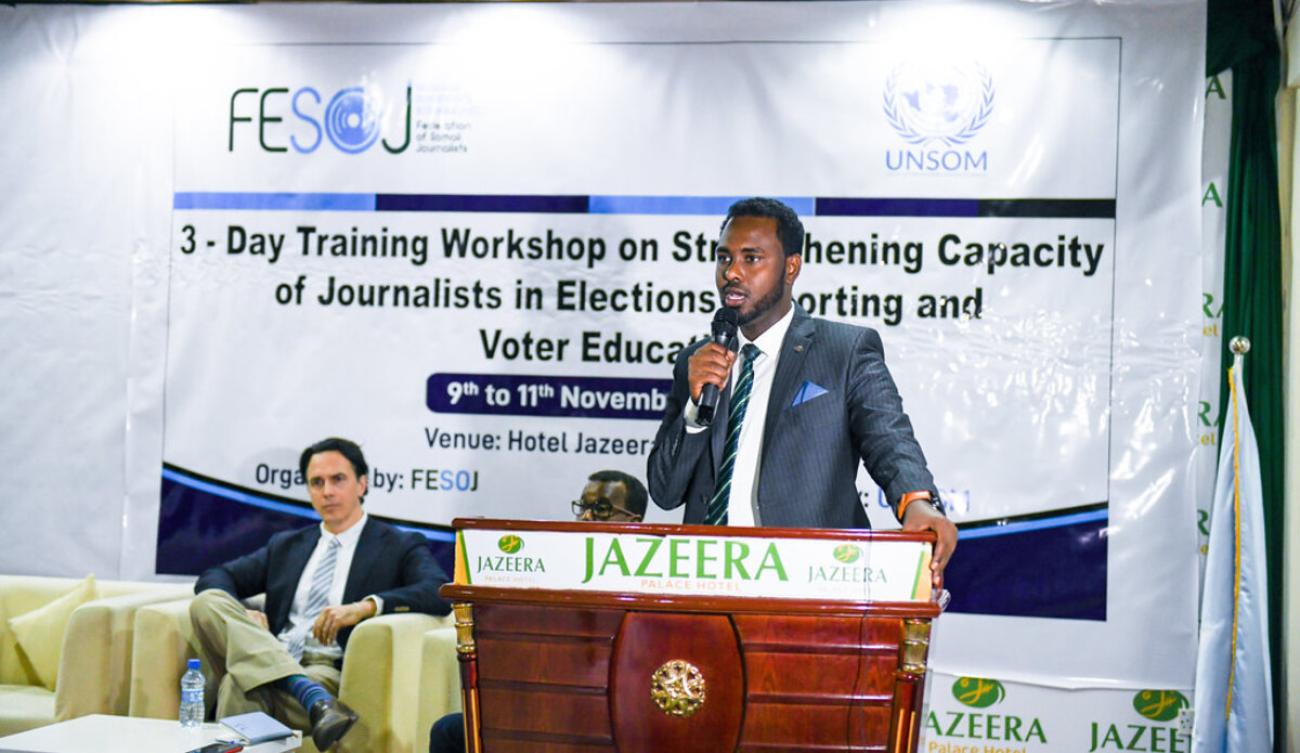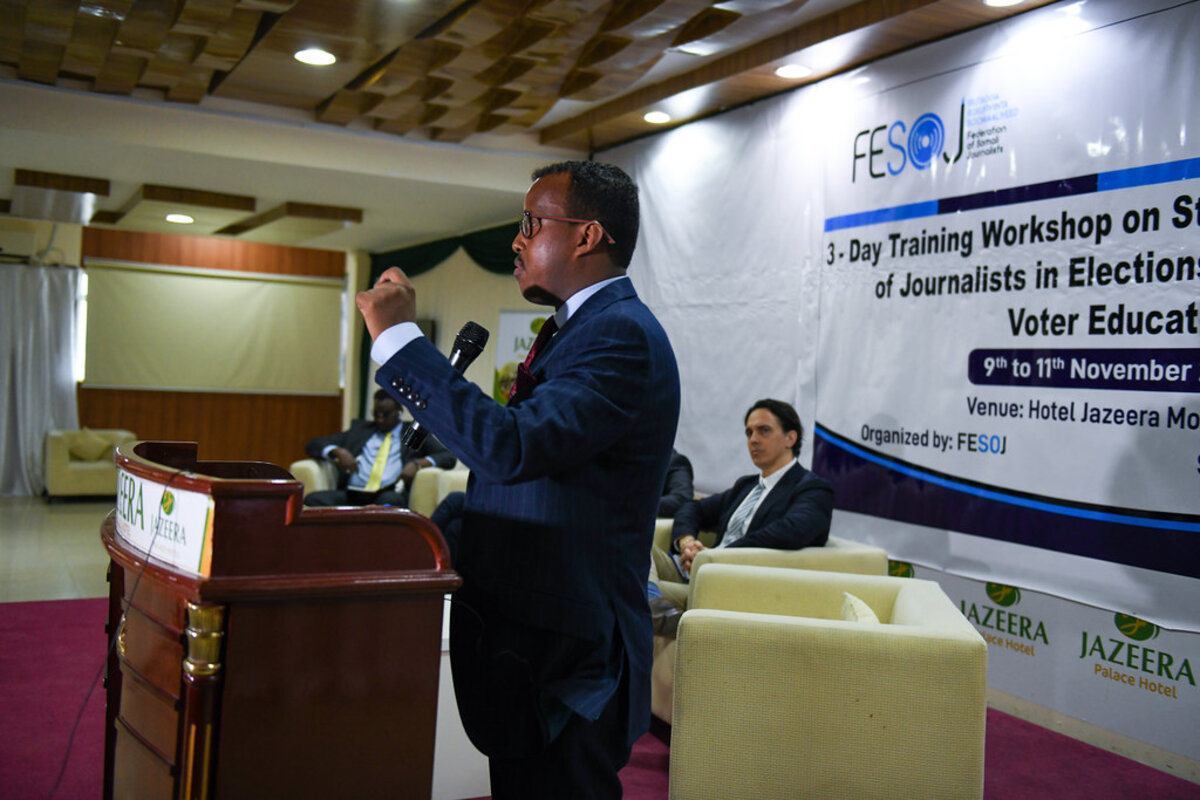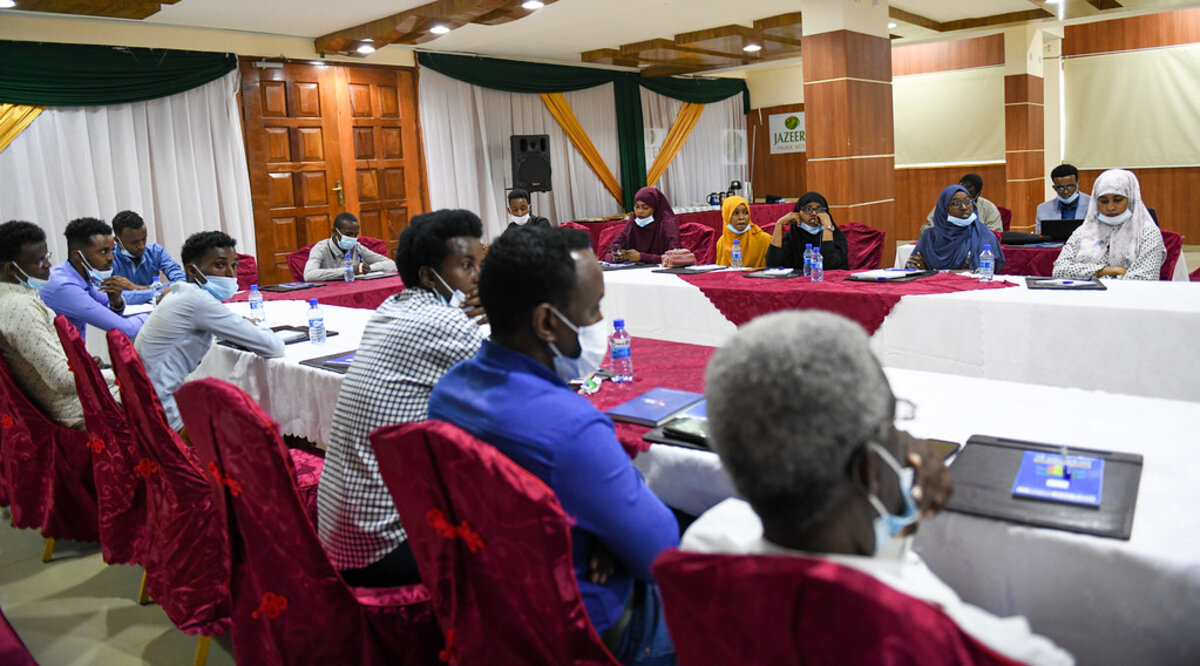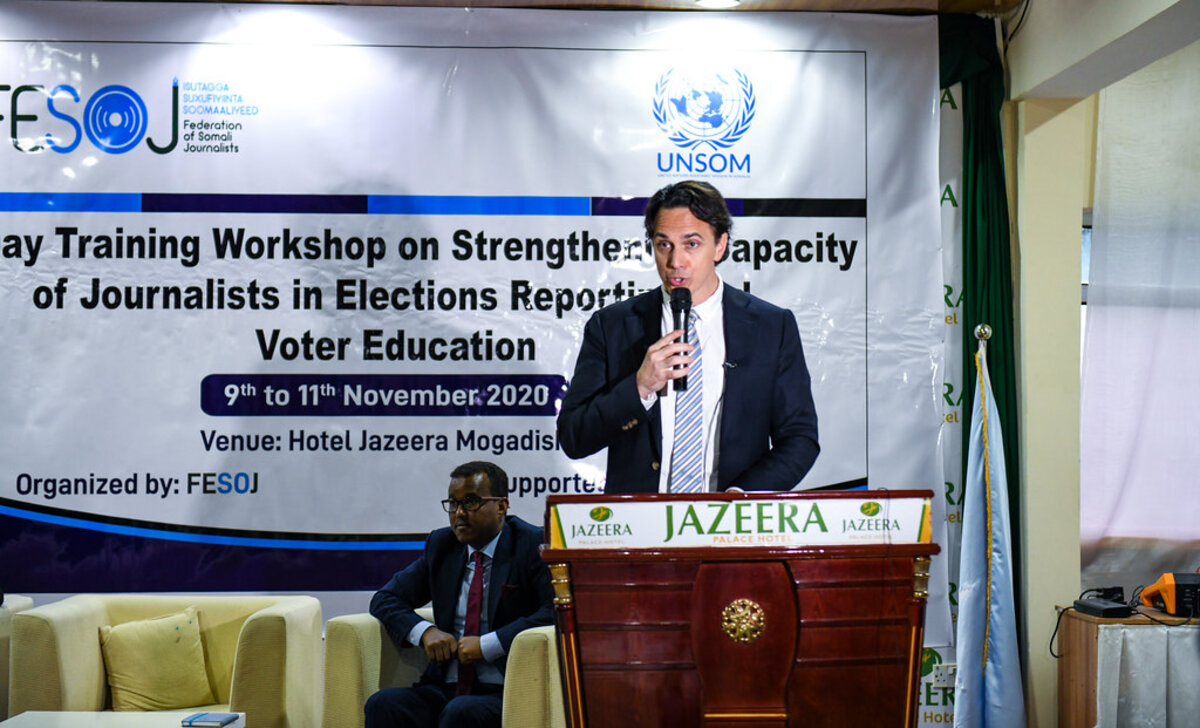As Poll Preparations Begin, Somali Journalists Undertake Training on Elections Reporting

With support from UNSOM, Somali journalists take part in elections reporting training.
Mogadishu – Ahead of Somalia’s elections, the importance of the media’s role in the upcoming electoral process was centre-stage as a group of journalists gathered for an intensive, United Nations-backed training on strengthening their reporting on elections and voter education.
“Election periods are serious and historic moments and it is important for journalists to learn how to report on them. I think two scenarios can be the most interesting and sensitive to learn about – the first one is when reporting amid conflict, especially in areas affected by conflict; and the second is at the polling stations, which are also sensitive locations when it comes to reporting on how things are going,” said the Office of the President of Somalia’s Director of Communications, Abdirashid Mohamed Hashi, at the start of the capacity development sessions held at a venue in the capital, Mogadishu.

“Thank you for bringing here veteran journalists who have been in the media for 40 or 50 years and more, and new journalists, to exchange their views openly. The Ministry of Information would like to thank you and encourage you for the opportunity you give Somali journalists. The country is at a critical juncture. There are many journalists who have lost their lives carrying out their work, and I am one of those who believe that Somalia would not have had a government after the civil war without a free media," Somalia’s Deputy Minister of Information, Abdirahman Yusuf Al-Adala, said in his remarks at the opening.
Supported by the UN Assistance Mission in Somalia (UNSOM), and organized by the Federation of Somalia Journalists (FESOJ), the three-day training brought together more than two dozen journalists from various Somali media outlets with a presence in the capital and working across various platforms, including television, radio and online channels.
The journalists are receiving training in areas ranging from the need for neutrality to the uses of opinion polls. The aim is to enhance the journalists’ skills, allowing them to better report on the country’s impending elections and, consequently, improve the general public’s understanding of the electoral process. In addition to practical skills, there will be a specific focus on the theoretical aspects and approaches to covering elections.

“After this training, reporters will apply the knowledge they have gained in their daily activities. This training is important for Somali journalists, as the country is once again going to indirect polls and people need to understand more about the elections,” said FESOJ’s President Abaadir Abdulkadir Elmi.
Asides from the substantive elements of reporting on elections, the training will also include covering elections in volatile security situations. Various international media associations have spoken out about the challenges members of the media face in going about their work in Somalia, including in their dealings with authorities and targeting by Al-Shabaab terrorists.
Important role to play
The United Nations in Somalia has previously highlighted the role the media play in Somali society, and how they need to be able to carry out their work free from violence, harassment, detention, persecution, intimidation and censorship, especially as the country prepares for elections.
In his remarks at the opening today, UNSOM’s Chief of Strategic Communications, Ari Gaitanis, spoke about the Somali media’s important role.

“Quite simply: a democratic society must allow different viewpoints on political issues, on elections, and on a range of issues, to be expressed freely and openly, and the media has a key role to play here in all of these areas, including coverage of elections,” Mr. Gaitanis said.
“Democracy is more than the holding of elections; it also means ensuring a country’s political space allows for everyone to take part and, as I stress, the media has a key role to play in this,” he added. “Fact-based news and analysis depend on the work of journalists conducting independent reporting, rooted in the fundamental tenet: ‘journalism without fear or favour.’”
At today’s opening, attendees voiced their eagerness to start with the training.
"I think good reporting is significant, simply because people need to hear different opinions, such as the opinions of leaders running for office and their platforms, as well as the outcome of the elections,” said Hassan Ali Osman, a journalist with Kalfadhi, an independent news platform covering parliamentary and governance issues.
"It’s my first time attending this kind of training, and I’m optimistic about gaining a lot from the facilitators providing the teaching. Media outlets provide information to the public and if the election isn’t reported well, then the public will not understand what’s happening. But if the election is covered fairly and professionally, the public will have chance to know of the elections’ integrity,” said Fardowsa Mohamed Sahal, a journalist with Galmudug Television.
Link to the original story.


